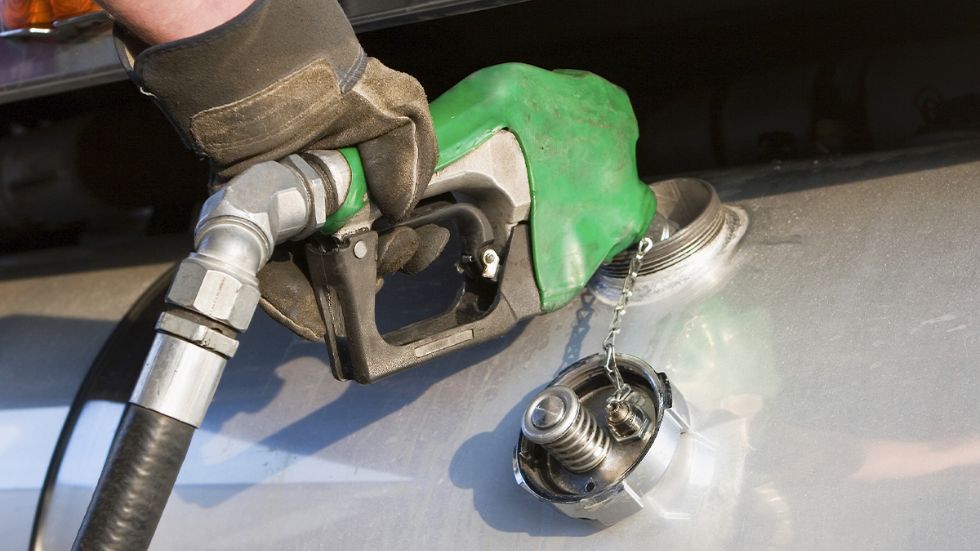Winter presents unique challenges for fleet operators, particularly concerning the performance of diesel fuel in frigid temperatures. Paraffin wax in diesel can crystallize, leading to fuel gelling, while water contamination can freeze, obstructing fuel lines and filters. These issues can significantly impact fleet operations, causing costly downtime and service disruptions.
Understanding the Impact of Cold Weather on Diesel Fuel
The primary concerns with diesel fuel in winter are:
- Fuel Gelling: While rare, gelling occurs when diesel, exposed to extremely low temperatures (typically below -10°F for 48-72 hours), transforms into a gel-like substance due to solidified paraffin wax.
- Cloud Point and Pour Point: The cloud point is the temperature at which wax crystals begin to form, giving the fuel a cloudy appearance. The pour point, usually 2-20°F lower, is the temperature at which the fuel loses its flowability.

3. Cold Filter Plugging Point (CFPP): This critical metric indicates the temperature at which solidified wax or ice blocks the fuel filter, hindering fuel flow to the engine.
4.Water Contamination: Water in diesel fuel is a major concern year-round. However, its impact is amplified during winter. Water ingress can occur through condensation, poor fuel quality, or leaks in storage tanks. When temperatures drop, this water freezes, forming ice blockages within the fuel system. These ice formations often occur at bends in fuel lines or within fuel filters, particularly in modern filters with tight filtration tolerances.
Mitigating the Risks of Water Contamination
To address water contamination effectively:

Regular Water Draining
Implement a routine for draining water from fuel tanks and water separators. This is crucial to prevent water accumulation.
Pre-Winter Maintenance
Schedule pre-winter maintenance checks to thoroughly clean fuel tanks and inspect the condition of water separators.
Proactive Monitoring
Continuously monitor for signs of freezing, such as decreased engine performance, difficulty starting, or frequent filter clogs.
Kerosene Blending: A Proven Solution
Blending kerosene with diesel fuel is a highly effective method for improving its cold-weather performance. Kerosene acts as a depressant, lowering the cloud point and pour point of the diesel. This prevents wax crystallization and ensures smoother fuel flow even in extremely cold conditions.
While kerosene has a higher cost and lower energy density than diesel, its benefits in winter significantly outweigh these drawbacks.
- Predictability: Blending ratios can be adjusted based on precise temperature forecasts, allowing for proactive and customized fuel treatment.
- Effectiveness: Kerosene effectively prevents fuel gelling and ensures reliable engine operation in extreme cold.
- Measurability: Blending ratios can be accurately tracked and monitored, allowing for adjustments to optimize fuel performance.

Fleets operating in colder regions often rely on winter blends of diesel and kerosene, commonly known as #1 diesel, to maintain reliable operations throughout the winter months.
Eagle-IoT’s Recommendations for Proactive Winter Fuel Management
To effectively address the challenges of winter fuel operation, Eagle-IoT recommends the following best practices:
Advanced Water Monitoring: Utilize sophisticated monitoring tools to track water levels in fuel tanks and separators in real-time. This provides valuable data for proactive water removal.
Early Kerosene Blending: Begin blending kerosene with diesel fuel well in advance of the onset of winter, typically around December 1st. Adjust blending ratios based on accurate temperature forecasts. Ensure the use of ultra-low sulfur kerosene to maintain compliance with emissions regulations and optimize engine performance.
Leveraging Real-Time Fuel Analytics: Eagle-IoT’s fuel management systems provide real-time insights into fuel quality, consumption, and contamination levels. This data-driven approach enables informed decision-making regarding fuel treatments and maintenance schedules.
Comprehensive Preventative Maintenance: Schedule and conduct thorough late-year maintenance checks, including cleaning fuel tanks, replacing filters, and inspecting the entire fuel system for potential issues. Eagle-IoT’s maintenance scheduling features streamline this process and ensure timely completion.
Driver and Fleet Manager Training: Educate drivers and fleet managers on recognizing and addressing potential fuel performance issues, such as clogged filters, difficulty starting, or decreased engine power.

Additional Recommendations for Enhancing Winter Fleet Operations
In addition to the above measures, implementing advanced telematics and remote monitoring systems can further improve winter fuel management. Eagle-IoT offers solutions that allow fleet managers to:
- Monitor vehicle performance and fuel consumption remotely, ensuring that engines operate efficiently even in cold weather.
- Receive alerts for potential issues such as low fuel quality or blocked filters, enabling swift corrective action.
- Optimize route planning to minimize idle times and fuel wastage during winter conditions.
Furthermore, fleet operators can consider adding fuel additives specifically designed to prevent gelling and improve lubricity during cold weather. These additives complement kerosene blending and offer an additional layer of protection.
The Importance of Proactive Fuel Management
The costs associated with stranded vehicles, emergency repairs, and service disruptions due to fuel-related issues can be substantial. Proactive fuel management strategies, including kerosene blending and regular maintenance, are a wise investment. These measures not only ensure reliable fleet operations but also enhance customer satisfaction and maximize overall operational efficiency. Eagle-IoT provides the necessary tools and expertise to implement these strategies effectively and seamlessly.

Winter presents unique challenges for diesel fuel performance. By understanding these challenges, implementing proactive fuel management strategies, and leveraging advanced technologies like Eagle-IoT’s fuel management solutions, fleet operators can mitigate risks, minimize downtime, and ensure reliable operations throughout the coldest months. With a comprehensive approach that combines kerosene blending, advanced analytics, and preventative maintenance, your fleet can remain resilient and efficient even in the harshest winter conditions.
Take action now to safeguard your operations and keep your fleet running smoothly all winter long.


